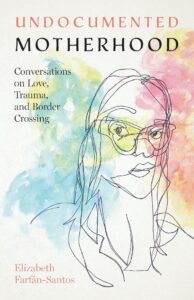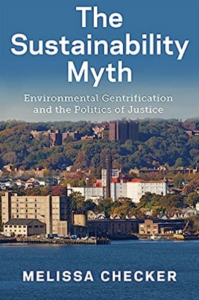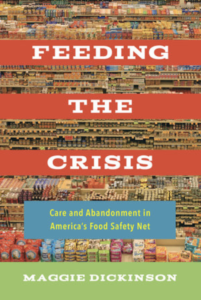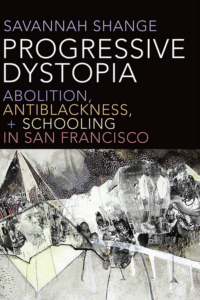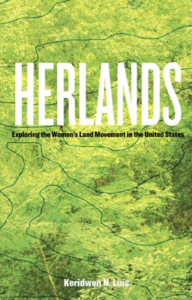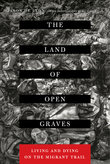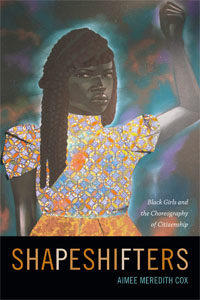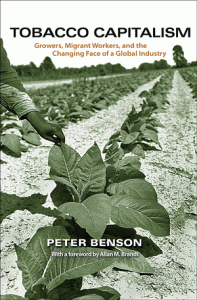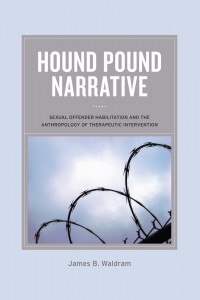The SANA Book Award is awarded every other year, with the most recent award given in 2023. The next award will be given in 2025 (for books published in 2023-2024).
2022-2023 Award Winner: Undocumented Motherhood
Undocumented Motherhood: Conversations on Love, Trauma, and Border Crossing, by Elizabeth Farfán-Santos (University of Texas Press)
“An intimate portrayal of the hardships faced by an undocumented family navigating the medical and educational systems in the United States.
Claudia Garcia crossed the border because her toddler, Natalia, could not hear. Leaving behind everything she knew in Mexico, Claudia recounts the terror of migrating alone with her toddler and the incredible challenges she faced advocating for her daughter’s health in the United States. When she arrived in Texas, Claudia discovered that being undocumented would mean more than just an immigration status—it would be a way of living, of mothering, and of being discarded by even those institutions we count on to care.
Elizabeth Farfán-Santos spent five years with Claudia. As she listened to Claudia’s experiences, she recalled her own mother’s story, another life molded by migration, the US-Mexico border, and the quest for a healthy future on either side. Witnessing Claudia’s struggles with doctors and teachers, we see how the education and medical systems enforce undocumented status and perpetuate disability. At one point, in the midst of advocating for her daughter, Claudia suddenly finds herself struck by debilitating pain. Claudia is lifted up by her comadres, sent to the doctor, and reminded why she must care for herself.
A braided narrative that speaks to the power of stories for creating connection, this book reveals what remains undocumented in the motherhood of Mexican women who find themselves making impossible decisions and multiple sacrifices as they build a future for their families.”
2022-2023 Honorable Mentions
Landscapes of Care: Immigration and Health in Rural America, by Thurka Sangaramoorthy, (University of North Carolina Press)
A Mass Conspiracy to Feed People: Food Not Bombs and the World-Class Waste of Global Cities, by David Boarder Giles (Duke University Press)
Running Out: In Search of Water on the High Plains, by Lucas Bessire (Princeton University Press)
2020-2021 Award Winner: The Sustainability Myth
The Sustainability Myth: Environmental Gentrification and the Politics of Justice, by Melissa Checker (New York University Press)
The book uncovers the hidden costs and contradictions of sustainable policies in an era driven by real estate development.
From state-of-the-art parks to rooftop gardens, efforts to transform New York City’s unsightly industrial waterfronts into green, urban oases have received much public attention. In The Sustainability Myth, Melissa Checker uncovers the hidden costs—and contradictions—of the city’s ambitious sustainability agenda in light of its equally ambitious redevelopment imperatives. Focusing on industrial waterfronts and historically underserved places like Harlem and Staten Island’s North Shore, Checker takes an in-depth look at the dynamics of environmental gentrification, documenting the symbiosis between eco-friendly initiatives and high-end redevelopment and its impact on out-of-the-way, non-gentrifying neighborhoods. At the same time, she highlights the valiant efforts of local environmental justice activists who work across racial, economic, and political divides to challenge sustainability’s false promises and create truly viable communities.
The Sustainability Myth is a cautionary, eye-opening tale, taking a hard—but ultimately hopeful—look at environmental justice activism and the politics of sustainability.
Melissa Checker is the Hagedorn Professor of Urban Studies at Queens College and an Associate Professor of Anthropology and Environmental Psychology at the CUNY Graduate Center.
2020-2021 Honorable Mentions:
Feeding the Crisis: Care and Abandonment in America’s Food Safety Net, by Maggie Dickinson (University of California Press).
The Supplemental Nutrition Assistance Program (SNAP), formerly known as food stamps, is one of the most controversial forms of social welfare in the United States. Although it’s commonly believed that such federal programs have been cut back since the 1980s, Maggie Dickinson charts the dramatic expansion and reformulation of the food safety net in the twenty-first century. Today, receiving SNAP benefits is often tied to work requirements, which essentially subsidizes low-wage jobs. Excluded populations—such as the unemployed, informally employed workers, and undocumented immigrants—must rely on charity to survive.
Feeding the Crisis tells the story of eight families as they navigate the terrain of an expanding network of assistance programs in which care and abandonment work hand in hand to make access to food uncertain for people on the social and economic margins. Amid calls at the federal level to expand work requirements for food assistance, Dickinson shows us how such ideas are bad policy that fail to adequately address hunger in America. Feeding the Crisis brings the voices of food-insecure families into national debates about welfare policy, offering fresh insights into how we can establish a right to food in the United States.
Maggie Dickinson is Associate Professor of Urban Studies at Queens College, City University of New York.
Progressive Dystopia: Abolition, Anti-Blackness + Schooling in San Francisco, by Savannah Shange (Duke University Press).
San Francisco is the endgame of gentrification, where racialized displacement means that the Black population of the city hovers at just over 3 percent. The Robeson Justice Academy opened to serve the few remaining low-income neighborhoods of the city, with the mission of offering liberatory, social justice-themed education to youth of color. While it features a progressive curriculum including Frantz Fanon and Audre Lorde, the majority Latinx school also has the district’s highest suspension rates for Black students.
In Progressive Dystopia Savannah Shange explores the potential for reconciling the school’s marginalization of Black students with its sincere pursuit of mulYracial uplio and solidarity. Drawing on ethnographic fieldwork and six years of experience teaching at the school, Shange outlines how the school fails its students and the community because it operates within a space predicated on anti blackness. Seeing San Francisco as a social laboratory for how Black communities survive the end of their worlds, Shange argues for abolition over revolution or progressive reform as the needed path toward Black freedom.
Savannah Shange is Associate Professor of Critical Race and Ethnic Studies at UC Santa Cruz.
2018-2019 Award Winner: Herlands
Keridwen N. Luis for Herlands: Exploring the Women’s Land Movement in the United States (University of Minnesota Press).
Herlands: Exploring Women’s Land Movement in the United States is a compelling ethnography of women’s land networks in the United States, highlights the ongoing relevance of these communities as vibrant cultural enclaves that also impact broader ideas about gender, women’s bodies, lesbian identity, and right ways of living. As a participant-observer, Keridwen N. Luis brings unique insights to the lives and stories of the women living in these communities.
2016-2017 Award Winners: The Land of Open Graves and Shapeshifters
There were many excellent nominations for the 2017 SANA Book award. The committee decided to share the award this year between two awardees.
- Jason De León for The Land of Open Graves: Living and Dying on the Migrant Trail (University of California Press).
- Aimee Meredith Cox for Shapeshifters: Black Girls and the Choreography of Citizenship. (Duke University Press).
2016-2017 Honorable Mention:
Sarah Horton, for the book They Leave their Kidneys in the Fields: Illness, Injury and Illegality among US workers (University of California Press).
2013-2014 Award Winner: We are the Face of Oaxaca
Lynn Stephen & Collaborators for the book We are the Face of Oaxaca: Testimony and Social Movements (Duke University Press 2013).
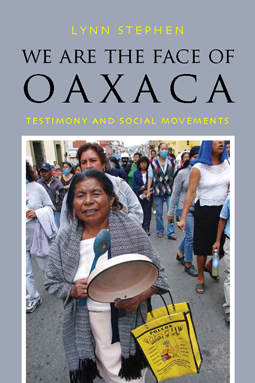
2013-2014 Honorable Mentions:
Audra Simpson, for the book Mohawk Interruptus: Political Life Across the Borders of Settler States (Duke University Press 2014).
Kenneth MacLeish, for the book Making War at Fort Hood: Life and Uncertaintly in a Military Community (Princeton University Press 2013).
2011-2012 Award Winner: Tobacco Capitalism
Peter Benson for the book Tobacco Capitalism: Growers, Migrant Workers, and the Changing Face of a Global Industry (Princeton University Press 2011).
Peter Benson expertly handles grounding his topic in a broader historical and political economic context, telling a rich story while avoiding – and expressly dismantling – the oversimplified narratives that permeate the themes he engages. He succeeds in his aim to situate a nuanced, sensitive account of the workers’ experiences within a critical analysis of broader structural forces, illuminating a range of political projects that shape the contemporary historical moment.
2011-2012 Honorable Mention: Hound Pound Narrative
James Waldram for the book Hound Pound Narrative: Sexual Offender Habilitation and the Anthropology of North America (University of California Press).
Taking seriously and, without romanticization, James Waldram attempts to understand the situations of a nearly universally reviled group – sexual offenders – and does it well. He dodges the pitfalls of conventional tropes around these topics, problematizing and disrupting a range of assumptions along the way while examining the production and roots of the numerous discourses discussed. The rich ethnographic detail makes this a compelling story.


